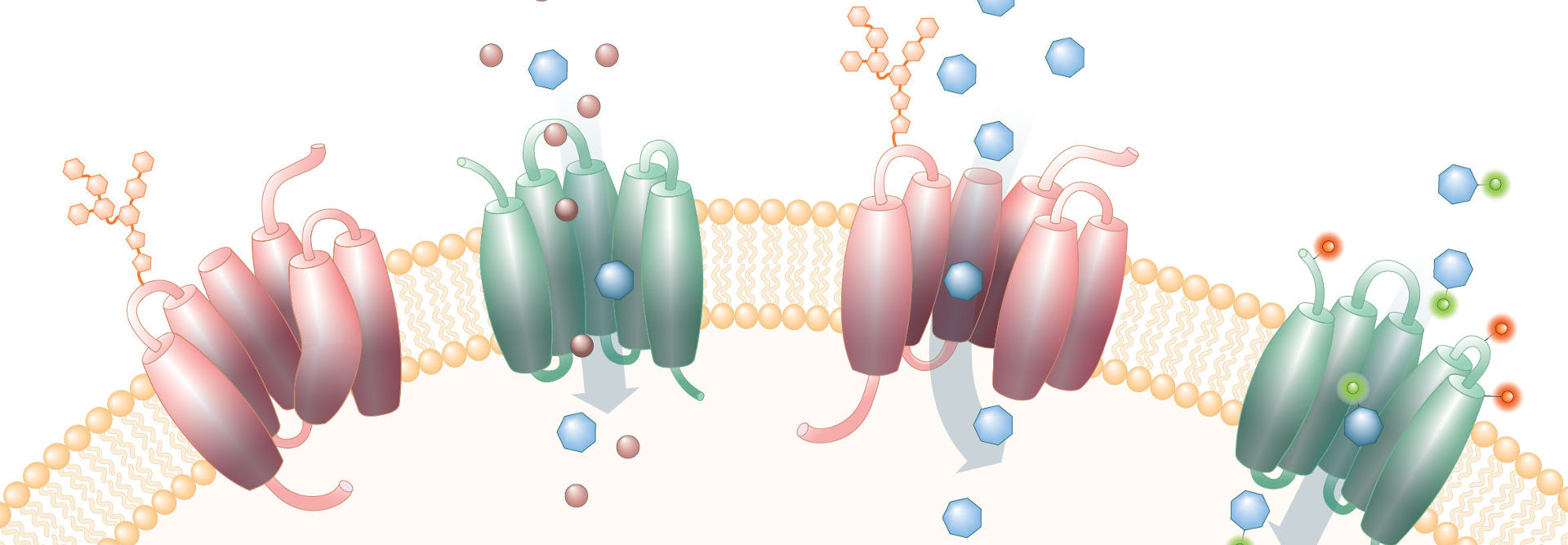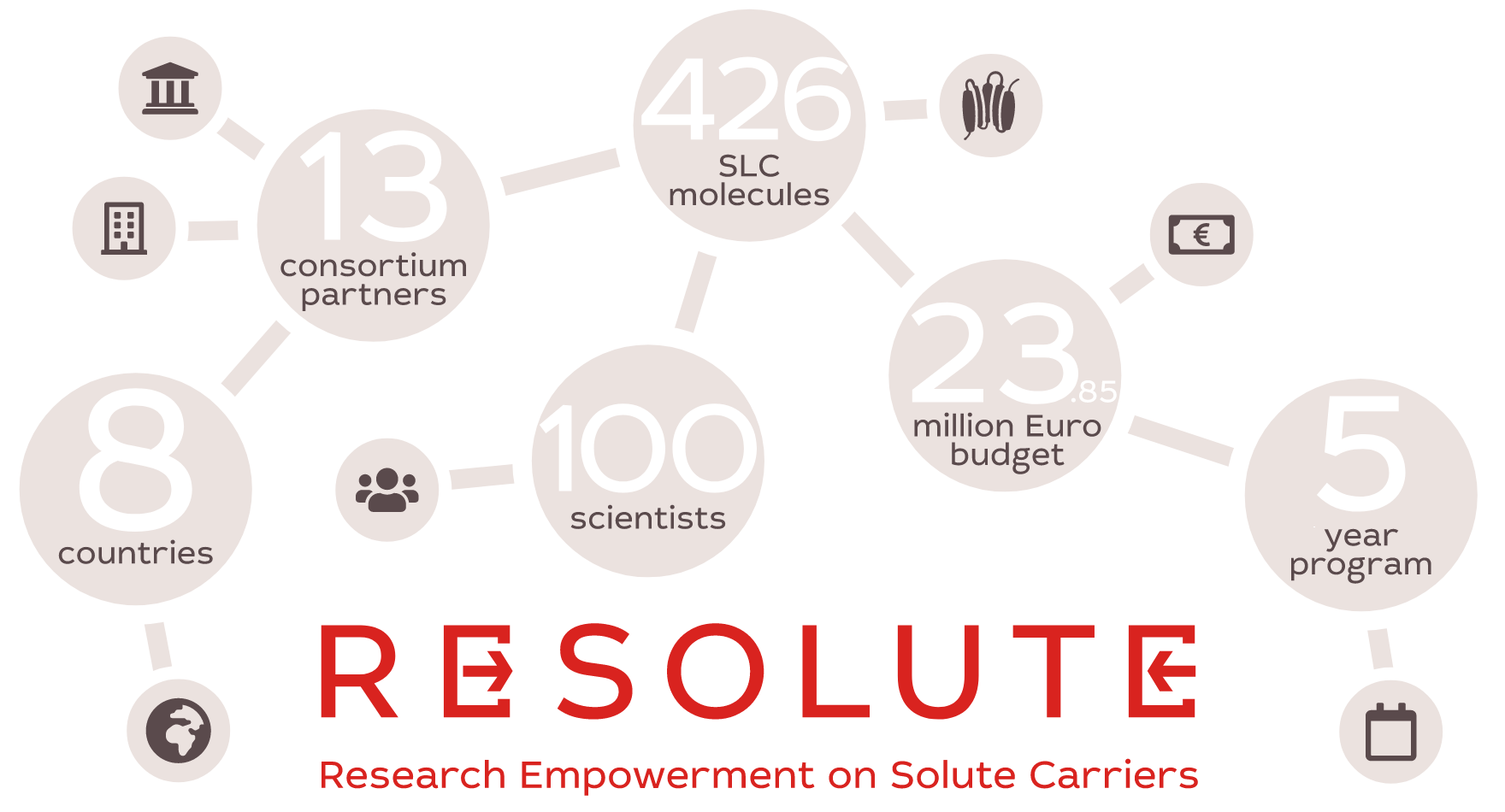About RESOLUTE
“RESOLUTE was formed to accelerate the pace of research of the solute carrier class of protein transporters,” said Giulio Superti-Furga, RESOLUTE academic project coordinator. “The research output and techniques will be available openly and pre-competitively to the scientific community. This will lead to a considerable gain in knowledge, and is expected to have a large impact on medicine and drug discovery and also on our general understanding of the interface between biological systems and the environment.”
Source: re-solute.eu/about
Claire Steppan, of Pfizer, said, “The approximately 400 members of the different SLC families represent a largely untapped source of new potential drug targets, and merit the efficiency of scale that can be achieved through systematic and coordinated research efforts. We are looking forward to a fruitful collaboration among all consortium members and within the larger scientific community.”
SLC membrane transport proteins control essential physiological functions, including nutrient uptake, ion transport and waste removal. SLCs can be seen as gatekeepers and include over 400 membrane proteins arranged into 65 families based on sequence similarity. SLCs are the second-largest group of membrane proteins in the human genome. They can use ion gradients to drive uphill transports, work as exchangers or facilitate passive diffusion of specific molecules. SLCs are vital for maintaining homeostasis in the body and in individual cells, and genetic polymorphisms in SLCs are associated with several diseases, such as amyotrophic lateral sclerosis (ALS), Alzheimer's disease, and schizophrenia. Furthermore, SLCs can function as drug targets, as well as constitute paths for drug absorption into specific organs.
Source: re-solute.eu/facts


